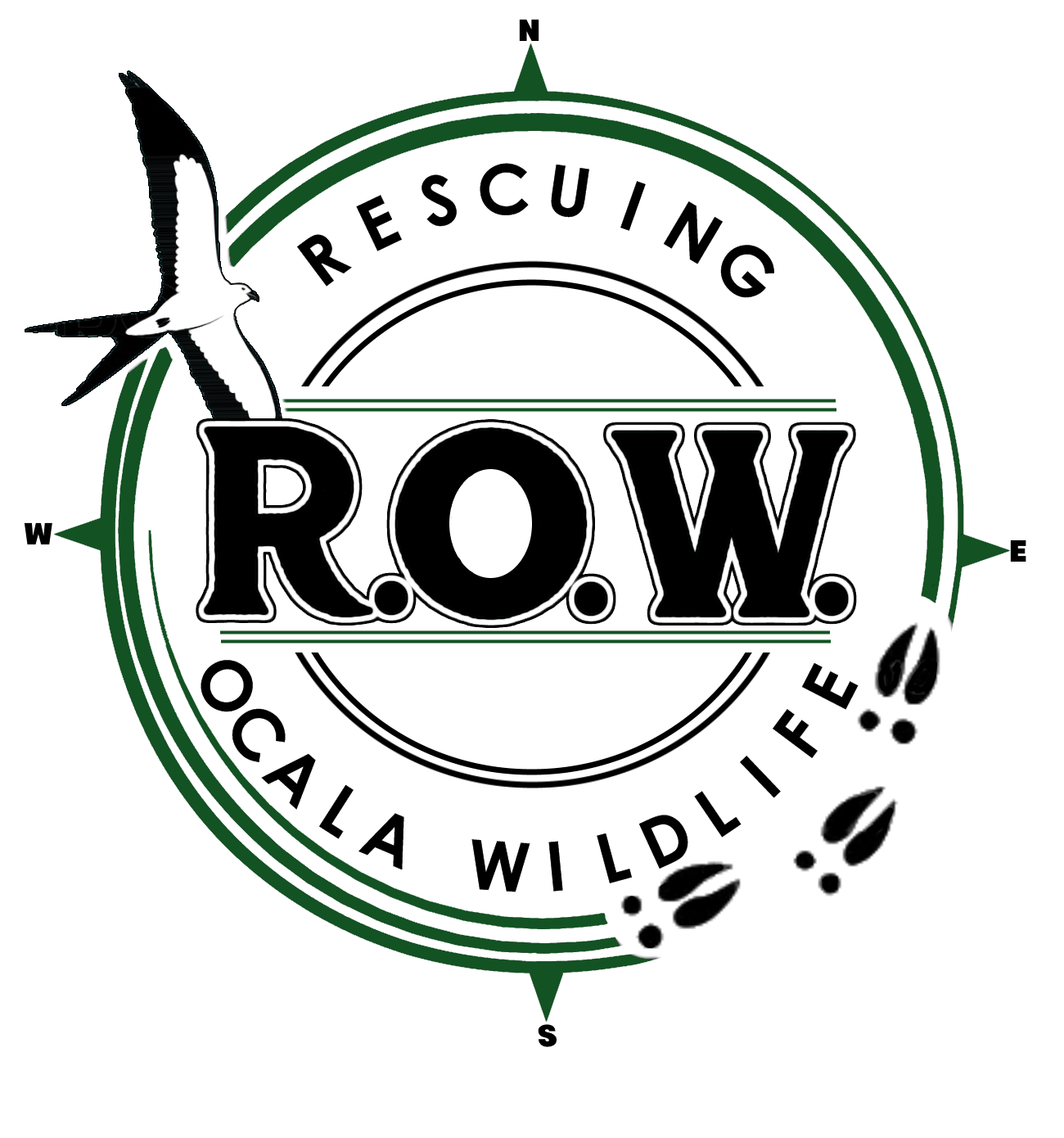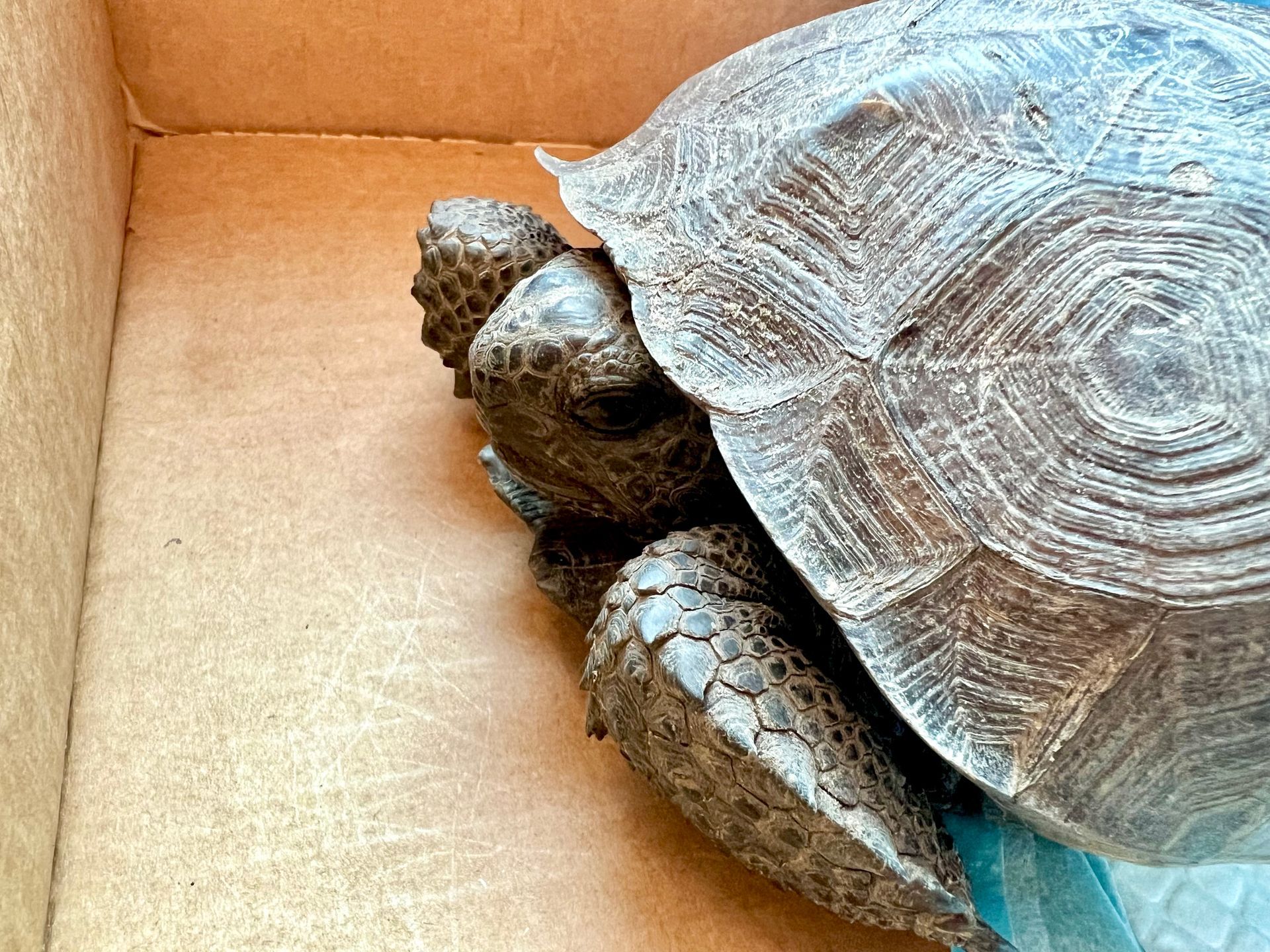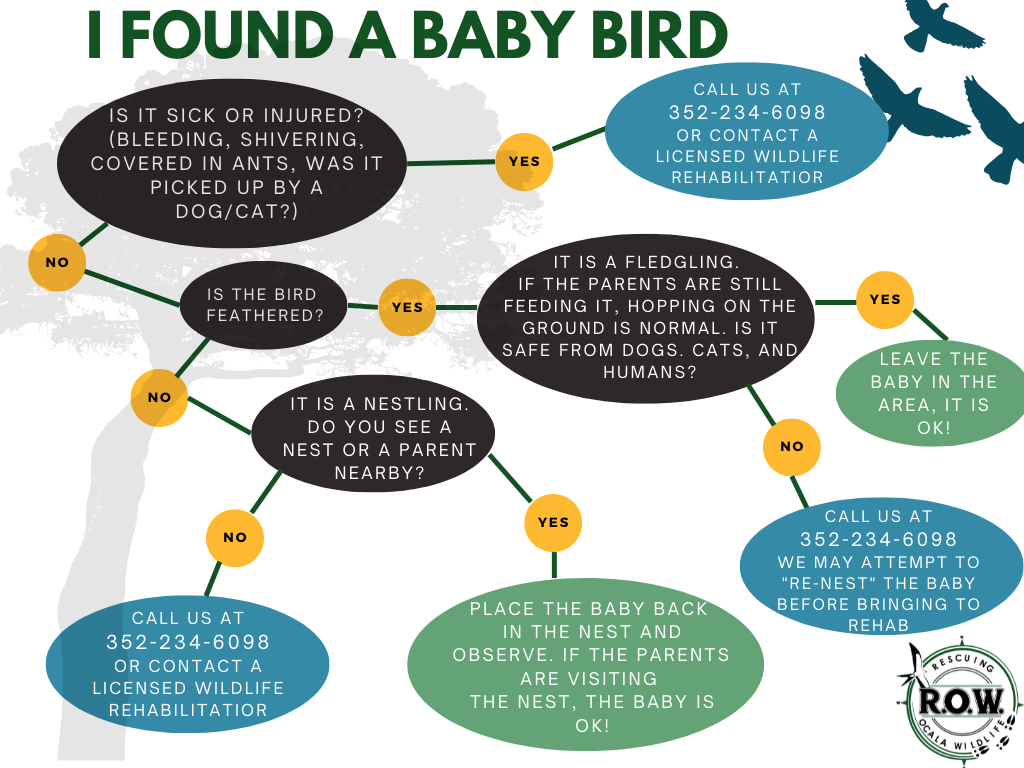FOUND WILDLIFE
How to Determine if Wildlife Needs Help
Sometimes baby animals may appear orphaned, but just because we do not see a parent does not mean that wildlife has been abandoned. While many people mean well and want to help animals, intended "rescues" can often be kidnappings, and steps taken to try to help (like feeding found animals) can do more harm than good. Remember the saying, "if you care, leave them there"! Wildlife left with their parents are much better off, so if you find an uninjured baby bird or squirrel on the ground, getting it back to the nest (or making it a new one) is sometimes the best course of action.
Click here to see the Found Baby Bird decision chart.
This is not to say that intervention is never necessary, but if you are unsure if wildlife is injured, orphaned, or ill,
please
call us before stepping in
at
Most importantly, NEVER give any wild animal food or water!
Even the youngest orphaned wildlife will be fine without anything to eat/drink until they are in the hands of a professional caregiver. The best thing you can do for them is provide a warm, quiet place where they are safe from potential predators. Put them in a cardboard box, give a blanket/towel, and place the box away from all household pets, kids, and excess noise.
If you are not able to contain the animal, note the location (cross streets, nearby businesses, or drop a pin on Google Maps) and take photos clearly showing the injuries to text to us, and keep an eye on the animal until we arrive.
Some signs that wildlife need help include:
- any evidence of bleeding or broken bones
- wildlife brought to you by a dog or cat
- animals wrapped in fishing line/hooks or other debris
- a baby animal near a dead parent
- laying down for extended periods of time, or allowing a human to approach
- wildlife hit by cars or flown into telephone wires, windows, etc
- a baby animal that feels cold to the touch
- a baby animal covered in insects
**Please note that these are only a few examples, and if you have questions, you should contact us.
Containing an Animal
To safely contain small birds, most turtles, and other small animals, it is best to use a cardboard box. To keep them calm and minimize stress, cover their eyes with a sheet, blanket, or even a t-shirt or jacket. Please note that you should not attempt to handle animals that are known carriers of rabies, such as raccoons, bats, foxes, skunks, or coyotes.
Make sure that the cardboard box has proper ventilation with air holes. Boxes are preferable to wire crates or cat carriers as they reduce the risk of injury, such as feathers or small paws getting caught. It is important not to offer any food or water to the animal, even if you think it may be dehydrated or extremely hungry. Force-feeding or giving water through a dropper can result in aspiration pneumonia or even death, and an incorrect diet can cause GI upset. Even newborn animals will be ok until they can get to professional help, so please reach out as soon as possible and only keep the animal contained; not fed!
Find a quiet and dark place in your home, away from loud noises and other animals, to place the box. Even if the animal seems receptive to being petted or held, it is likely due to weakness or injury rather than a normal behavior, and being handled can be stressful for them. The best course of action is to leave them alone until help arrives, as this will be most beneficial to their well-being.
Our Rescue Procedures
- Please do not handle any wild animal unless directed. Even small animals can injure you; some species carry diseases transmissible to humans.
- Do not give the animal food or water. Incorrect feeding can cause choking/aspiration, and wildlife in shock can die from force-feeding.
- Depending on the location of where wildlife is found, we may ask you to wait with the animal. This is so that our Wildlife Rescuers can quickly locate wildlife and so that it does not leave the area.
- Our Wildlife Rescuers do not respond to calls after dark for their safety. If you find wildlife in need after hours, please leave us a voicemail or text us and be as specific as possible with your location, type of wildlife found, issue, and time of call. We will return your call at 8am the next day. Please ensure you have your phone ON and answer our call the next morning.
With any questions or concerns, please feel free to contact us and we will respond as quickly as possible.







